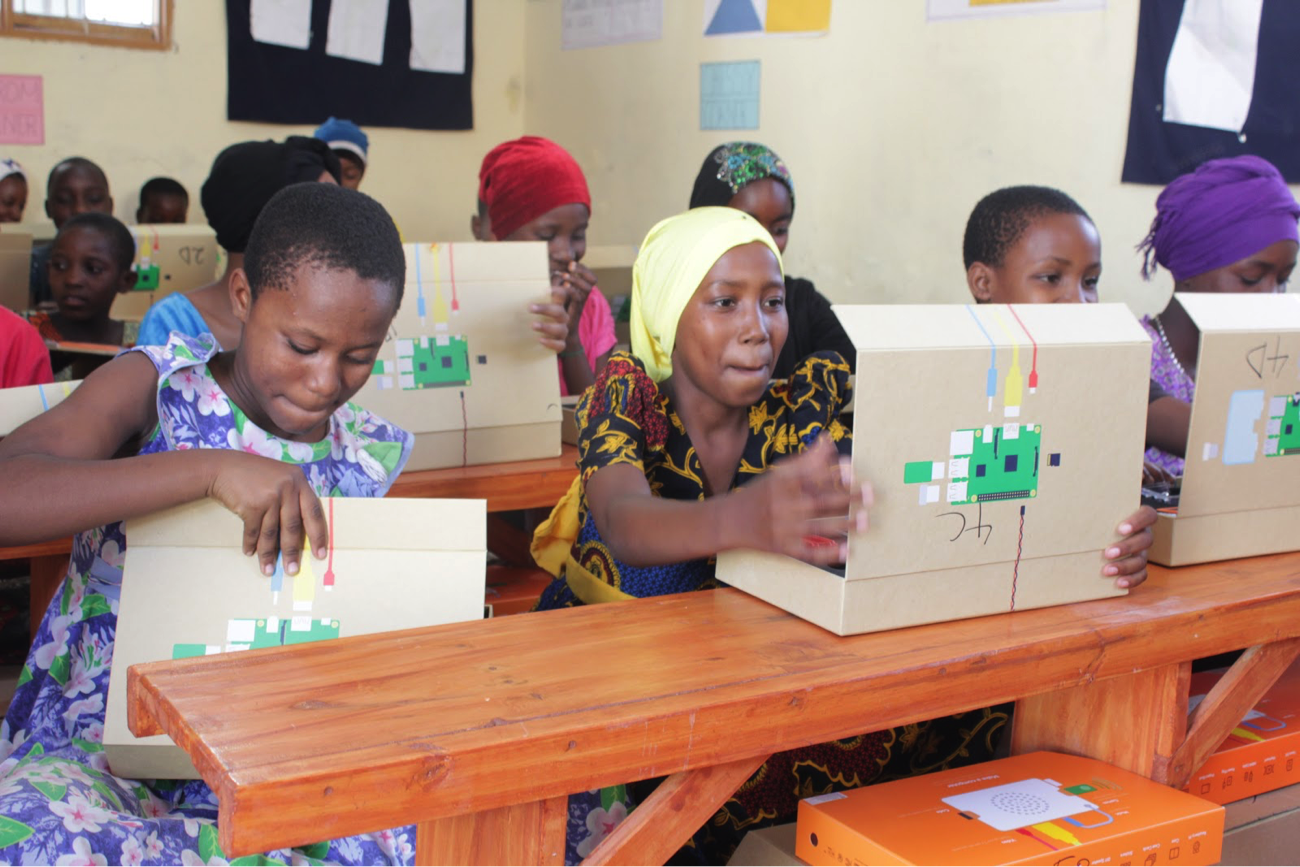Voith joins forces with Theirworld to combat gender inequality in the digital labor market

Girls in Tanzania receiving computer kits. Photo © Theirworld
What will the workforce look like in 2030? What kind of skills will today’s youth need to know – and be proficient in – in order to succeed in a complex and collaborative workplace?
These questions – among others regarding the Fourth Industrial Revolution – are essential when it comes to conversation about girls and skills development.
Global Business Coalition for Education (GBC-Education) member Voith and Theirworld recognize that the economy of tomorrow will be diverse and tech-focused. During this year’s Africa Code Week, Voith and Theirworld will be launching “Code Clubs” in Tanzania to help close the gender gap in the digital labor market.
“This innovative initiative for education will help girls and young women to learn technical coding and develop vital communications and leadership skills, which prepare them for entering the expanding technology sector across Africa,” says Hubert Lienhard, President and CEO of Voith Gmbh & Co. KGaA.
Voith’s initiative to support girls and young women throughout Tanzania exemplifies the kind of work that business can be doing to combat gender inequality. By educating girls in how to build computers, learn code, and other skills essential for the Fourth Industrial Revolution, the private sector can ensure that millions of people are not excluded from bringing their innovation, talents, and experiences to the workforce.
In addition, preparing girls for the future is an essential part of addressing the growing skills and talents gap forming among today’s youth. By 2030, over half of the world’s young people – 825 million, the majority of whom are girls – will lack the basic skills needed for employment. The private sector must be aware of the challenges that tomorrow’s workforce will face, including automation, increasingly collaborative environments, and a generally more complex workplace.
“We know that investing in a girl has social and economic returns that go beyond her, extending not only to her family and future children, but also to her community,” says Sarah Brown, President of Theirworld and Executive Director of GBC-Education. “Engaging the private sector and mobilizing its resources are key to scaling these approaches to as many girls and young women as possible.”
When the private sector invests in girls, it invests in the future. Each additional year a girl spends in school translates to 10 percent more in wages later in life. With higher wages comes greater prosperity, ensuring that societies can escape cycles of poverty and build sustainable consumer bases for business.
The new Code Clubs being established in Tanzania will expand and complement Theirworld’s existing Code Clubs in Kenya, Uganda, and Nigeria, thereby ensuring that girls and young women in Africa receive an in-depth education in the area of science, technology, engineering, and mathematics (STEM).
WATCH the video below to learn more about the new Code Clubs in Tanzania:
Follow the link here to read about Theirworld’s work in supporting girls’ education.
